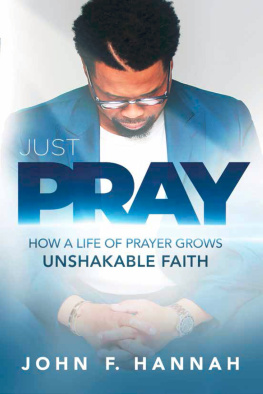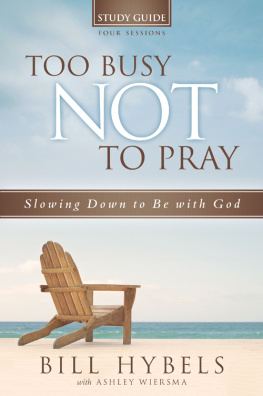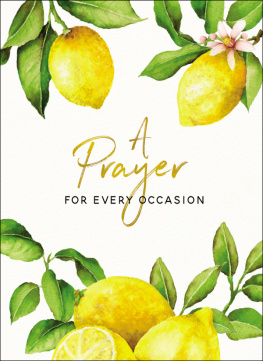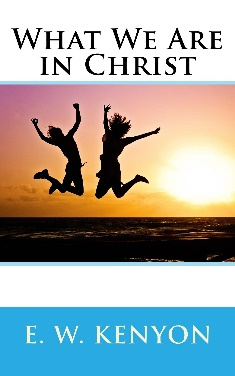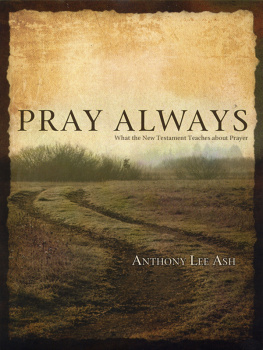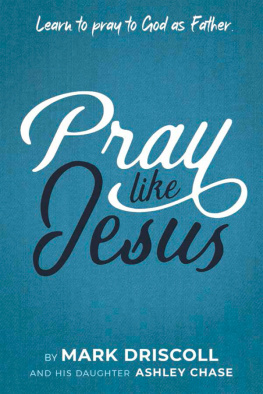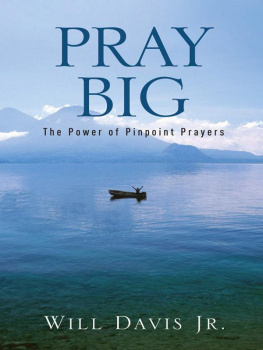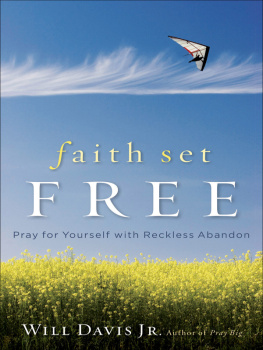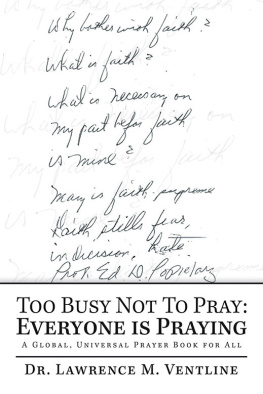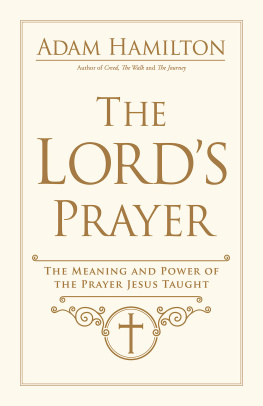WHY PEOPLE PRAY
MORDECAI SCHREIBER

This book is dedicated to my
agent and my dear friend Peter Miller,
a man of faith whose friendship
and inspiration helped me bring
this book to completion.
CONTENTS
Copyright 2016 by Mordecai Schreiber
FIRST EDITION
All rights reserved. No part of this book may be reproduced in any form or by any electronic or mechanical means, including information storage and retrieval systems, without permission in writing from the publisher, except by a reviewer who may quote brief passages in a review.
Permissions:
Scripture from the Old Testament is translated by the author from the original Hebrew.
Scripture taken from the New Testament is from the New King James Version Copyright 1982 by Thomas Nelson.
Used by permission. All rights reserved.
Library of Congress Cataloging-in-Publication Data On File
For inquiries about volume orders, please contact:
Beaufort Books
27 West 20th Street, Suite 1102
New York, NY 10011
Published in the United States by Beaufort Books
www.beaufortbooks.com
Distributed by Midpoint Trade Books
www.midpointtrade.com
Printed in the United States of America
Interior design by Lorin Taylor
Cover Design by Michael Short
PART ONE
WHAT IS PRAYER
1. WHY PEOPLE PRAY
As a rabbi, I have led people in prayer for many years and I am well aware of the emotional, spiritual, and social benefits of prayer. But I am also aware of the questioning and the outright rejection of prayer by those who doubt God or have become disillusioned with religion.
Since I retired ten years ago I had the good fortune of sailing the seven seas, first as a passenger and subsequently as a cruise rabbi. This gave me the opportunity to observe people of many different creeds and cultures engage in prayer, and I learned two important lessons about the human condition in our troubled twenty-first century: first, millions of people worldwide pray; and second, prayer is an essential human need.
I was not raised in a religious household, nor was I taught to believe that there is someone who hears prayer. I was born in the Land of Israel under the British Mandate, before it became the State of Israel. My parents and their friends had left Europe before the Great Catastrophe which, in less than four years, from June 1941 to May 1945, wiped out centuries of Jewish life, culture, and piety. They left because they no longer believed that asking God to send the long-awaited messiah would save them from the gathering storm and restore them to their Promised Land. So they stopped praying, they became secular Jews, and they went to that land on their own. They did not teach their children how to pray, because they did not believe in the power of prayer, and because they were too busy building a new state and a new society which demanded many sacrifices, and still does.
I had to discover prayer and religion on my own.
I am eternally grateful to my parents for having taken their fate into their own hands and for helping give birth to the first Jewish state in two thousand years. But from a very young age I felt connected to my ancestors who believed in God and for whom prayer was a way of life. Growing up in a land which is the cradle of world religions, I was always fascinated by prayernot only Jewish prayer but all prayer. From early on, my understanding of prayer has been very broad, much broader than the confines of any particular house of worship. Moreover, since I was not raised as a religious person who was taught to believe in a particular religion, it was always clear to me that prayer is universal and that the One who, to borrow the words of the Jewish prayer book, hears prayer, hears everyones prayer. In all of creation there is a yearning, a longing for something more than the life-giving elements of nature, such as sun, air, water, or nutrition. It is a longing to reach higher than ones limits, to become one with the source of all life. Here we may be entering the realm of mysticism, which is an expression of the human heart rather than the human mind, and which may be off-limits to science.
I consider myself a religious evolutionist. While I am a Jew who believes in God, I also believe that while God never changes, the idea of God has been evolving throughout time. Even within the Bible the idea of God evolves, from El Shaddai to Adonai to Elohim and so on. From a God who for centuries was worshiped with the offering of animal sacrifices, to a God who instead expects ethical behavior and sincere prayer. Judaism has given rise to two world religions, namely, Christianity and Islam. While all three believe in the same God, they have been at odds with one another throughout time as though they believed in different gods, which has resulted in deadly conflicts that continue to this day. I believe that a new age will dawn one day, when the entire human race will at long last realize we all believe in the same God, albeit in different ways, and that there are as many paths to God as there are human beings in this world, including non-believers, and that no one has a monopoly on God.
Whether or not one believes in God, the idea of God is the most unifying principle the world has ever known. The French philosopher Voltaire said, if God did not exist, we would have to invent God. On a recent visit to the island of Bali in Indonesia, where the prevalent religion is Hinduism, my Hindu guide explained that Hindus, though worshiping a variety of deities, believe that all of them are manifestations of the one God. The Catholic Church maintains that the trinity is three manifestations of the one God. Islam proclaims that there is no God but God. And Judaism says, Hear O Israel, Adonai our God, Adonai is one.
On his recent visit to the Holy Land, Pope Francis sought to initiate a reconciliation process with the Orthodox churches. I myself have been working for many years with Christian clergy on interfaith matters, and for the most part I have found my Christian colleagues to be open and anxious to reach a new age of religious coexistence. Jews and Christians share common scriptures, and have a common prayer history. There is much we can learn from each other when it comes to prayer.
I would like to take you on a journey through this primordial and essential human phenomenon known as prayer. I would like you to come along with me, without any preconceptions or bias, and see how together we can explore our personal experience of prayer. Some of us pray regularly; some of us pray occasionally; some of us dismiss prayer as a waste of time. But even those who fall into the last category find ways to pray, perhaps not in the usual sense of the word, but in ways that are not commonly associated with prayer, as we shall find out. I submit that there is no such thing as a life without prayer, whether or not one believes in a supreme being.
To live is to pray. Every day when we get up in the morning we pray for life and wellbeing for ourselves and for those we care about. We may either do so by using formal prayer, or we may simply respond to the moment of awakening when we become conscious of receiving the gift of a new day and the ability to stand up and carry on with our life. This sentiment was given one of its most beautiful expressions in a Christian hymn of Scottish origins which was made into a popular folk song by the pop singer Cat Stevens, the son of a Greek Orthodox father and Swedish Baptist mother, who himself became a Muslim in later life and who now calls himself Yusuf Islam:


